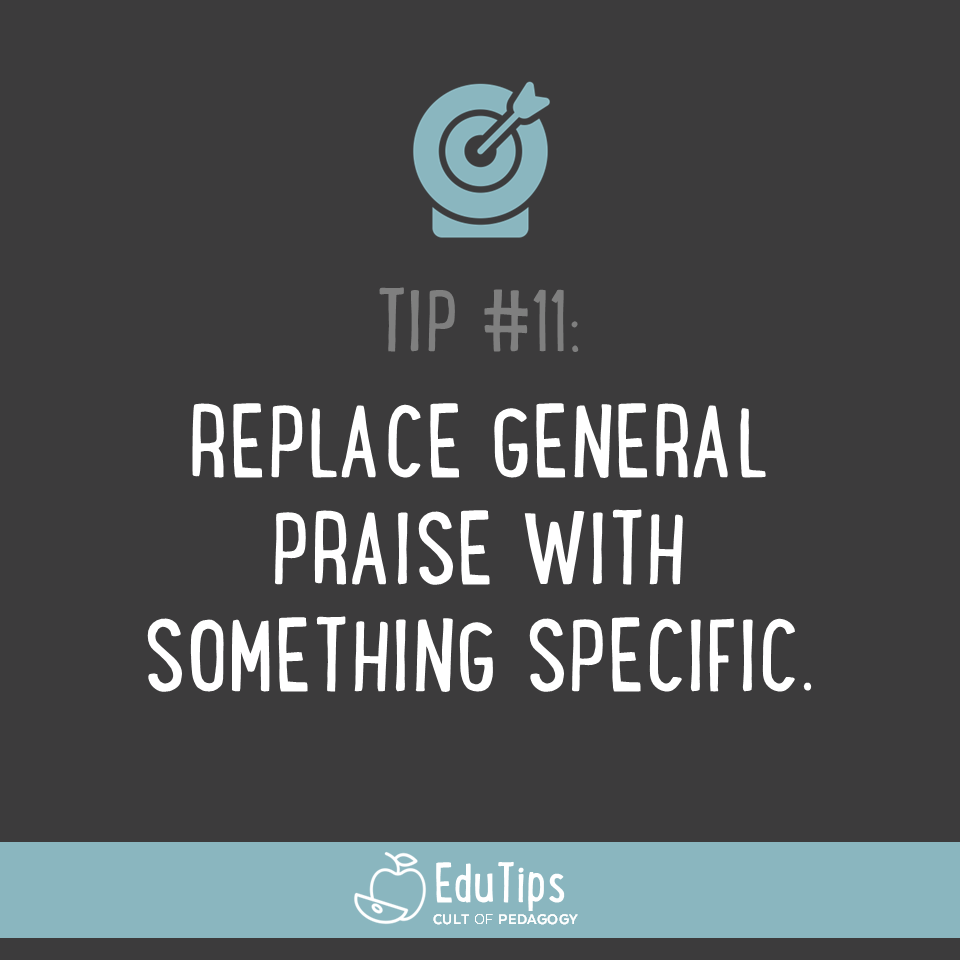Sponsored by Stash101.

Watch a video version of this EduTip on Instagram.
While we go about our days interacting with students, we’re constantly watching the things they do and oftentimes, we feel the urge to give them some sort of feedback. Some of the most powerful feedback is the positive kind. Positive feedback helps students know they’re on the right track. It helps push them to keep going.
The thing is, not all praise is created equal. When we say something generic like “good job,” it might make the student feel good, but that’s about it, because the student doesn’t know exactly what they did right. They might be able to guess, but they don’t know for sure. And if you say “good job” to an entire class? Then no one really knows what they did well. These kinds of compliments don’t really do any significant damage, and it could be argued that they’re better than nothing, but we could be doing so much better.
What has a lot more impact is specific praise given to individual people.
Suppose Nathan is a student who tends to get off track easily in class and usually needs to be redirected several times every class period to get back to work. One day you give students an assignment and he starts right away, staying on task for ten full minutes without looking around, getting out of his seat, or striking up a conversation with a neighbor. If you just walked by and said, “Good job, Nathan,” that’s not going to be nearly as powerful as saying “You’re really sticking with your work today, Nathan,” or even “Great focus this morning, Nathan.” This tells him what he’s doing right and encourages him to keep going.
Here are some other examples of specific praise:
- For a student who struggles with organization: “Looks like you got all your papers hole-punched and in the rings.”
- For a student who often turns work in late: “You submitted your assignment an hour before the deadline last night.”
- For a student who tends to get easily frustrated with math: “Awesome—you went back to those two really challenging problems and tried again. Way to stick with it.”
By the way, there’s nothing inherently wrong with phrases like Good job or Nice work, so adding them on to specific compliments is perfectly fine. Just try to get the specifics in there, too.
A couple more tips about praise:
- Praise the behavior, not the person. Saying something like “You’re such a talented writer” contributes to a fixed mindset. A compliment like “You used some pretty advanced writing techniques in this piece” focuses on what the student did—which is under the student’s control—not on some trait they happened to be born with.
- Focus praise on effort, not outcome. The student can’t control the outcome, but they can control how much effort they put in, so instead of saying “You got the highest score!!” say, “You worked so hard on this!”
- Praise privately. As students get older, public praise can become much less desirable for most students, because it can draw attention to them in ways they may not want, so deliver your praise in one-on-one conversations.
Don’t overdo it. Being overly effusive with your praise can come off as insincere, so for best results, go for a sincere, direct, pleasant demeanor, rather than running laps of joy around the parking lot.
See all EduTips here.
